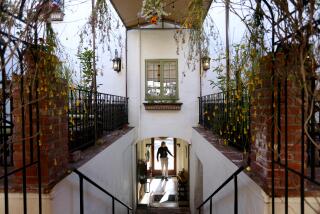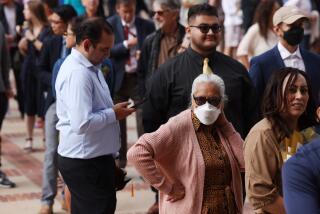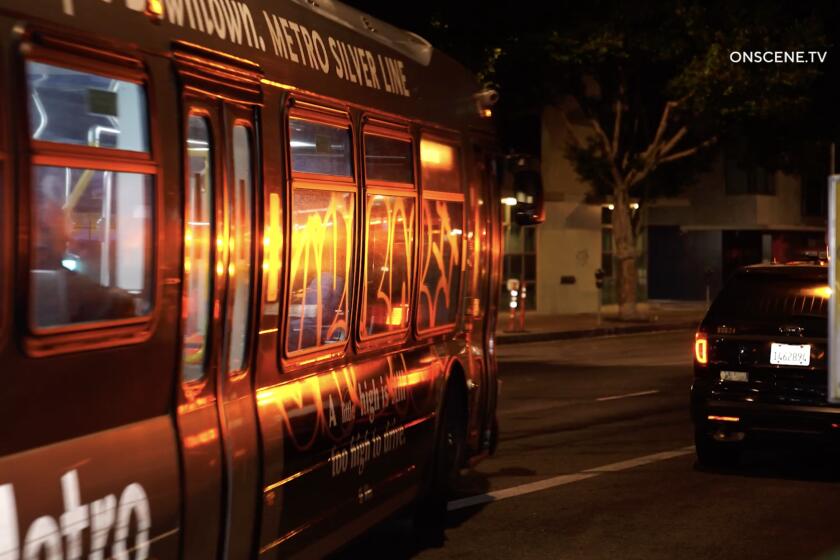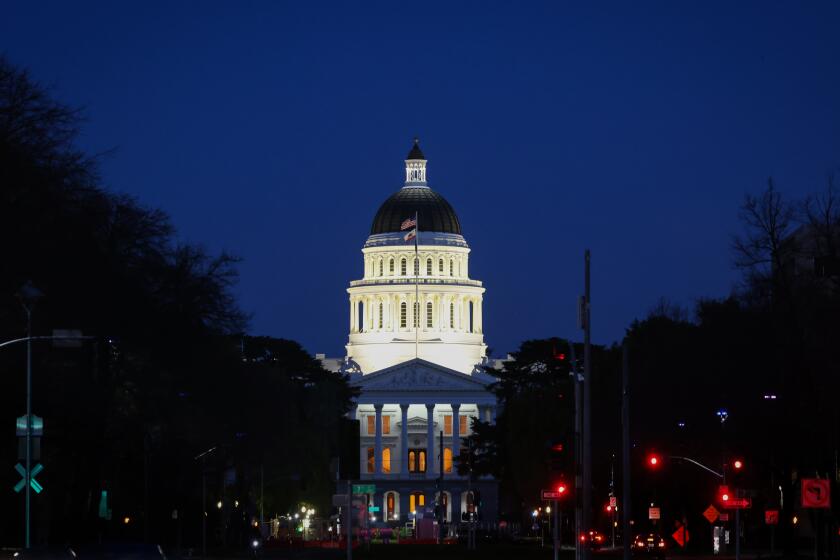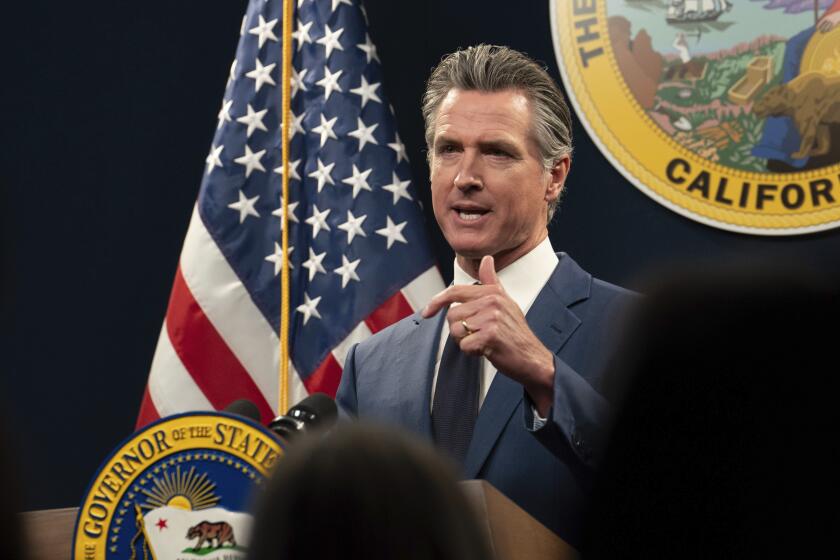L.A. Urged to Divert Waste From City Landfills
A report released Wednesday recommends that Los Angeles adopt a waste management and disposal plan that would divert waste from landfills within city limits, expand recycling efforts and raise public awareness about solid waste disposal practices.
At a news conference in Granada Hills, where the nearby Sunshine Canyon Landfill has been the target of neighborhood protests, Mayor James K. Hahn announced he has directed departments to develop a plan to divert 70% of waste from landfills to recycling and other uses by 2020, report in 60 days on requiring recycling for private trash haulers and launch a pilot program early next year to pick up recyclables from 100,000 apartment units.
Hahn requested the report to make good on a campaign promise to end landfill operations in Los Angeles within three years.
During the campaign, secessionists and San Fernando Valley residents voiced widespread concern that the city was dumping all its trash in the Valley. “Today, I am taking measures, based upon the recommendations in this report, to divert more trash from entering landfills so that the people of Los Angeles can realize the vision that I laid out of a landfill-free city by 2006,” Hahn said.
Hahn said he supported adoption of a policy stating that once existing waste-disposal contracts expire the city would end the dumping of trash in any landfill within Los Angeles, which would include Sunshine Canyon when it expands.
The report, drafted by a landfill oversight committee Hahn appointed last year, attempts to strike a balance between diverting municipal solid waste from city landfills and maintaining reasonable trash disposal fees, according to the report.
“Although the city is obligated to deliver all the residential refuse collected within the city to Sunshine Canyon Landfill because of a five-year exclusive contract (with three additional five-year options for a total of 20 years) with BFI initiated in early 2001, the city has decided to seek alternative disposal options when the first five-year period expires,” according to the report.
To achieve this goal, the report recommends the city adopt waste conversion technologies, expand recycling efforts, increase public awareness regarding solid waste disposal practices and hauling trash to landfills outside city limits.
City Council members led by Tom LaBonge have requested a report on the cost of sending the city’s trash outside the city after raising questions about whether the city can afford to do so.
“Given the city of Los Angeles’ very serious financial straits, I believe the responsible thing is to first learn the true cost of closing Sunshine Canyon, including how much taxpayers would have to pay for alternative waste disposal programs,” LaBonge said.
Hahn was dismissive of that concern.
“Some of those council members are the same council members who were for closing Mission Canyon [landfill] even though that ended up costing the city a minimum of $20 million more per year in transportation costs,” Hahn said.
The mayor said he has reviewed proposals submitted by companies to provide alternatives to dumping at Sunshine Canyon and predicted “a very modest cost to wean us off of using these landfills in the city.”
The report calls for waste conversion technologies that would include turning food waste and sewer sludge into compost and using gases generated by mixed solids, food waste and sludge for ethanol that can be used in city vehicles.
The document outlines numerous recycling efforts, including directing the city Bureau of Sanitation and all other city departments to reduce waste disposal by 70% based on waste tonnages generated in 1990. The Sanitation Bureau also would develop a plan for recycling food waste and food-soiled paper from residential bins.
To raise awareness among residents regarding solid waste practices, the report recommends the city use a Web site as a clearinghouse for environmental programs, including waste reduction and recycling information. Outreach programs also could be developed for county, state and federal facilities, schools, residences and businesses, the report suggested.
Times staff writer Patrick McGreevy contributed to this report.
More to Read
Start your day right
Sign up for Essential California for news, features and recommendations from the L.A. Times and beyond in your inbox six days a week.
You may occasionally receive promotional content from the Los Angeles Times.
